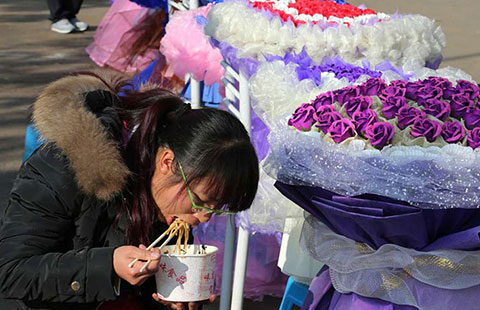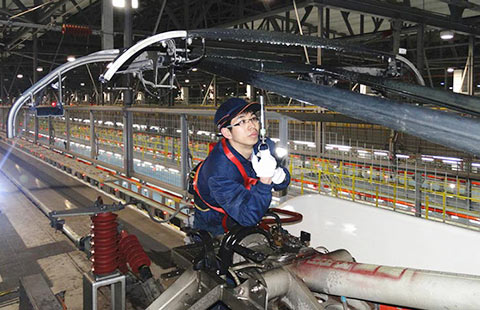Tax reductions aim to boost service trade
By ZHANG YUE (China Daily) Updated: 2016-02-15 04:15China will seek to increase the service and merchandise trade by increasing accessibility for overseas companies and providing tax cuts for technology providers, a State Council executive meeting decided on Sunday.
Further opening up the service market and developing the service trade despite the "complex and challenging global economic situation" was one of the main items on the agenda.
The first State Council executive meeting after the Spring Festival holiday was presided over by Premier Li Keqiang. Such meetings are usually held on Wednesdays.
The decision was made against the backdrop of China's imports and exports of merchandise encountering a bottleneck last year due to weakening export demand and rising domestic wages.
Many foreign enterprises, especially in various service industries, are striving for greater access to the Chinese market.
The meeting also decided that quickening development of the service trade can help China to generate new GDP growth and employment at a time when the country is ready to close a number of companies with excessive capacity, such as the steel and coal industries.
Pilot programs are to be launched in 10 cities along with five national-level new investment areas providing greater access and convenience to overseas companies, more flexible administration and diverse development models, the meeting decided.
The cities chosen for the pilot programs are Shanghai, Tianjin, Shenzhen, Guangzhou, Hangzhou, Suzhou, Hainan, Wuhan, Chengdu and Weihai (Shangdong province).
The national-level investment areas are Harbin in Heilongjiang province, Jiangbei (Nanjing), Liangjiang (Chongqing), Guiyang-Anshun (Guizhou), and Xi'an-Xianyang (Shaanxi).
- Chinese companies boost operations in Egypt
- From farm to dining table, food takes Web route to success
- Investors anxious as markets reopen
- Chinese buy nearly half of world's luxury products
- Online sales get Spring Festival boost
- Changing women help generate world's third largest beauty market
- World has fun buying Chinese stuff in February
- Top 10 most difficult cities in China to get a taxi
















